|
|
Post by TheWallsScreamedPoetry on Oct 4, 2011 9:19:02 GMT
 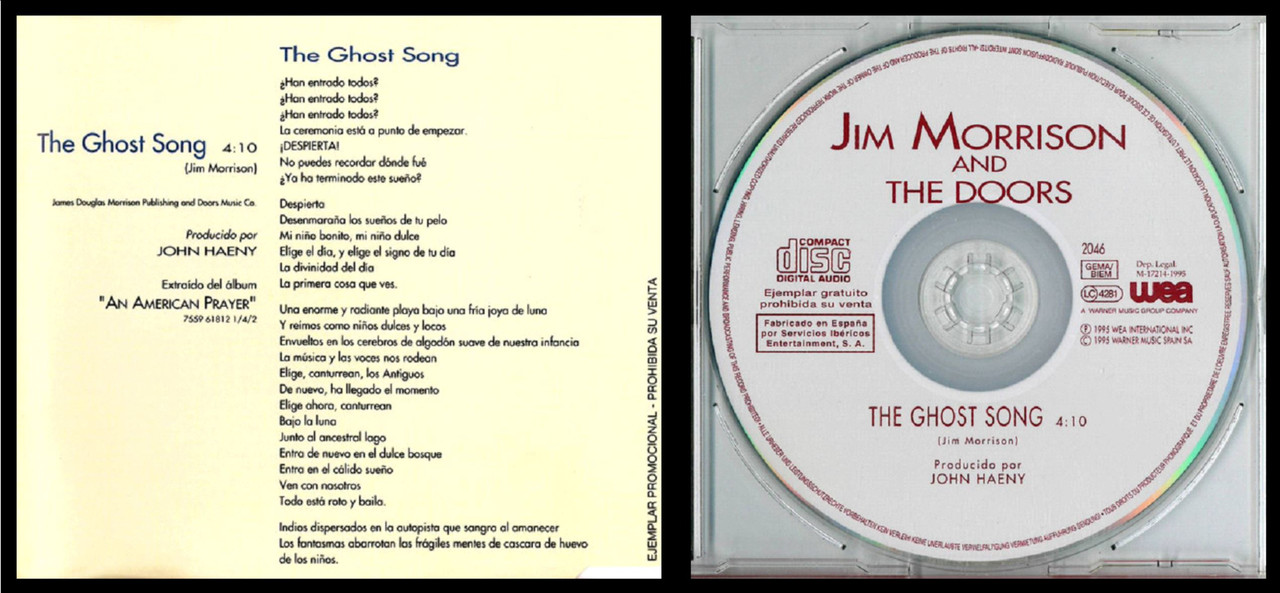 Spanish promo Single |
|
|
|
Post by TheWallsScreamedPoetry on Dec 1, 2011 11:42:26 GMT
Jim's self published volume of An American Prayer which he gave away to friends and newer strangers.   Discuss the MUSICAL side of American Prayer and The Doors contribution on this thread The Doors: An American Prayer
|
|
|
|
Post by TheWallsScreamedPoetry on Oct 16, 2012 14:14:23 GMT
|
|
|
|
Post by TheWallsScreamedPoetry on Nov 3, 2012 15:58:16 GMT
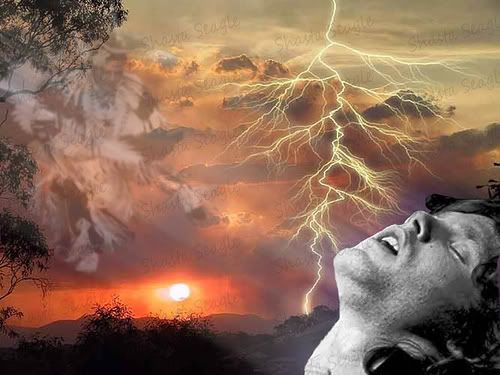 DAWN'S HIGHWAYIndians scattered on dawn's highway bleeding DAWN'S HIGHWAYIndians scattered on dawn's highway bleeding
Ghosts crowd the young child's fragile eggshell mind.
Me and my ‑ah‑ mother and father ‑ and a grandmother and a grandfather ‑ were driving through the desert, at dawn, and a truck load of Indian workers had either hit another car, or just ‑ I don't know what happened ‑ but there were Indians scattered all over the highway, bleeding to death.
So the car pulls up and stops. That was the first time I tasted fear. I musta' been about four ‑ like a child is like a flower, his head is just floating in the breeze, man. The reaction I get now thinking about it, looking back ‑ is that the souls of the ghosts of those dead Indians ...maybe one or two of 'em...were just running around freaking out, and just leaped into my soul. And they're still in there.
Indians scattered on dawn's highway bleeding
Ghosts crowd the young child's fragile eggshell mind.Blood in the streets in the town of New Haven Blood stains the roofs and the palm trees of Venice Blood in my love in the terrible summer Bloody red sun of Phantastic L.A.
Blood screams her brain as they chop off her fingers Blood will be born in the birth if a nation Blood is the rose of mysterious union Blood on the rise, it's following me.Indian, Indian what did you die for? Indian says, nothing at all.NEWBORN AWAKENINGGently they stir, gently rise
The dead are newborn awakening
With ravaged limbs and wet souls
Gently they sigh in rapt funeral amazement
Who called these dead to dance?
Was it the young woman learning to play the ghost song on her baby grand?
Was it the wilderness children?
Was it the ghost god himself, stuttering, cheering, chatting blindly?
I called you up to anoint the earth
I called you to announce sadness falling like burned skin
I called you to wish you well
To glory in self like a new monster
And now I call you to pray |
|
wplj
moderator 
Posts: 186
|
Post by wplj on Aug 27, 2013 14:00:09 GMT
Do we know what constitutes the "Rare Interview" track on this CD single?
|
|
|
|
Post by TheWallsScreamedPoetry on Aug 28, 2013 7:56:55 GMT
I have heard the UK single which was the same with a couple extra tracks and Swedish Radio from 1968 comes to mind. May be wrong as it's decades since I heard the single.
|
|
|
|
Post by TheWallsScreamedPoetry on Nov 5, 2022 11:14:55 GMT
|
|
|
|
Post by TheWallsScreamedPoetry on Nov 14, 2022 21:05:39 GMT
 Uncut July 2021  Creem January 1979 |
|
|
|
Post by TheWallsScreamedPoetry on Dec 28, 2022 17:16:12 GMT
|
|
|
|
Post by TheWallsScreamedPoetry on Feb 21, 2023 15:40:38 GMT
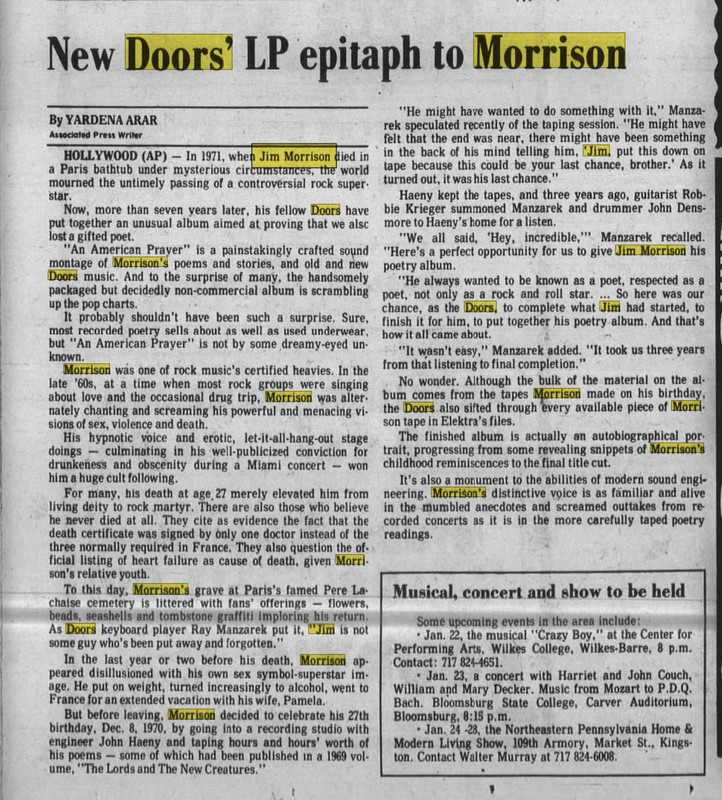 16-1-1979 Wilkes Barre Times Leader PN 18-11-1978 Music Week  29-12-1978 Berkeley Gazette CA |
|
|
|
Post by TheWallsScreamedPoetry on Nov 4, 2023 17:12:49 GMT
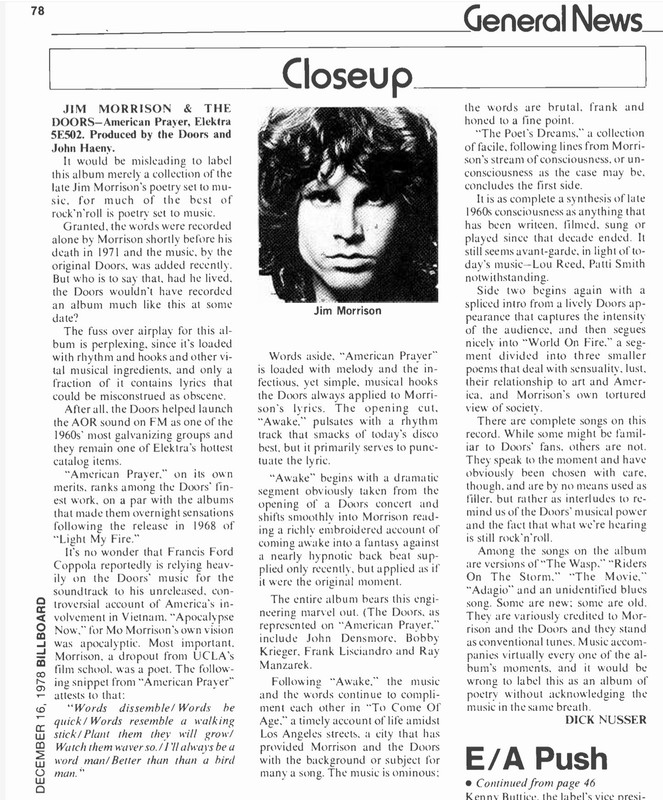 16-12-1978 Billboard  23-2-1979 The American University Eagle, Washington D.C. 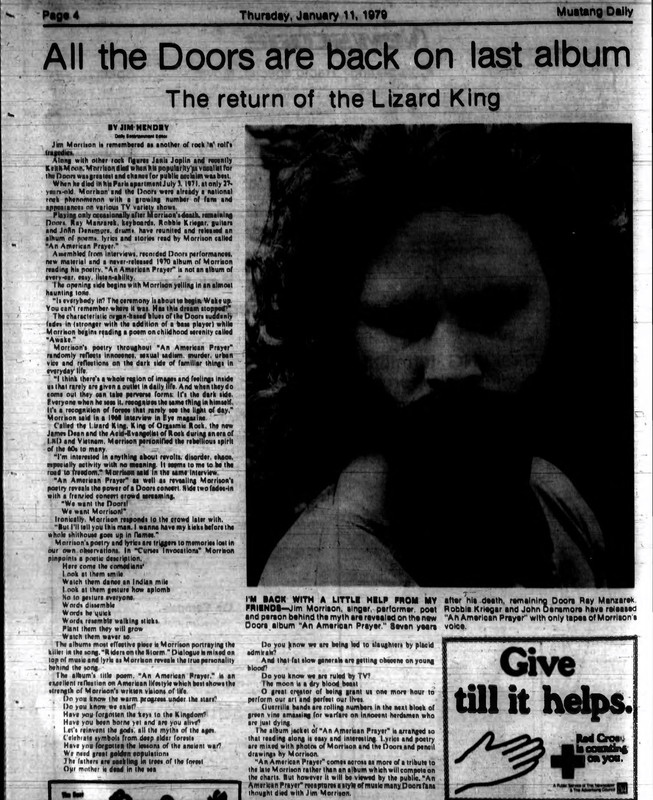 11-1-1979 Mustang Daily California Polytechnic State University San Luis Obispo CA  19-1-1979 Buffalo Spectrum NY |
|
|
|
Post by TheWallsScreamedPoetry on Feb 7, 2024 12:35:54 GMT
|
|
|
|
Post by TheWallsScreamedPoetry on Feb 7, 2024 16:38:32 GMT
|
|
|
|
Post by TheWallsScreamedPoetry on Feb 8, 2024 10:58:29 GMT
|
|
|
|
Post by TheWallsScreamedPoetry on May 16, 2024 10:58:06 GMT
  25-1-1979 Alabama Journal AL  24-12-1978 Newsday NY  11-12-1978 Bangor Daily News MN  3-3-1979 Bennington Banner VT  24-2-1979 Bluefield Daily Telegraph WV 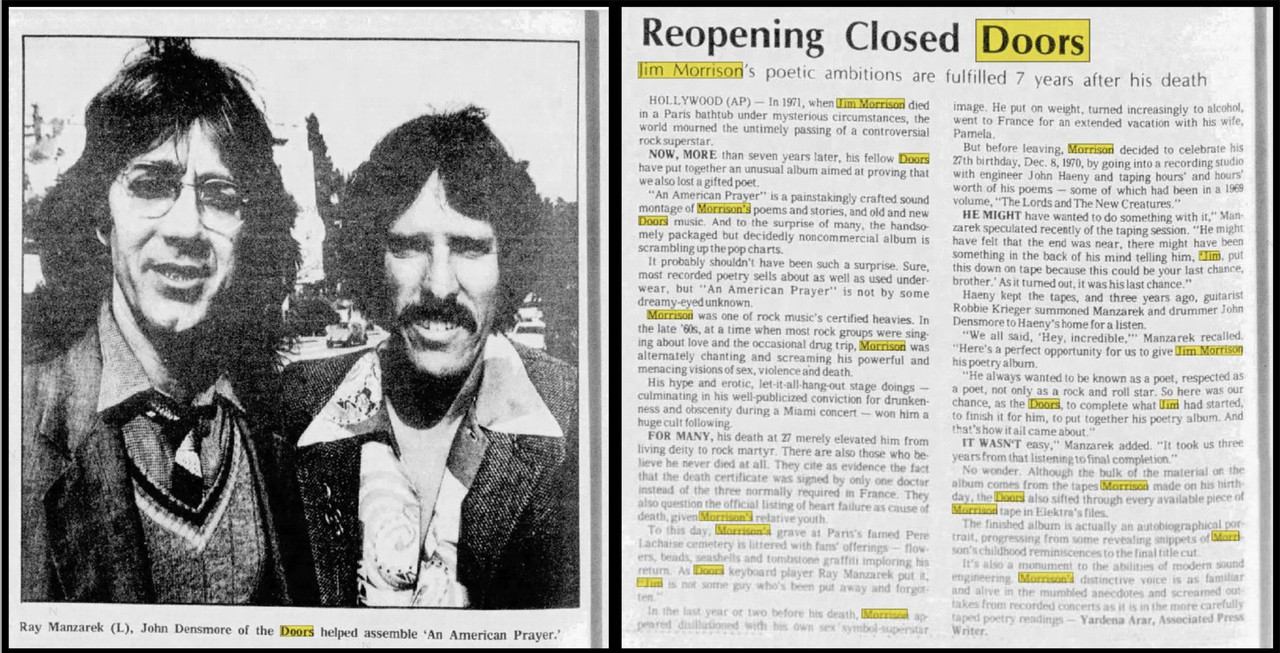 21-1-1979 Columbus Ledger OH  19-1-1979 Fort Lauderdale News FL  25-2-1979 Fort Pierce St-Lucie News FL |
|
|
|
Post by TheWallsScreamedPoetry on May 17, 2024 9:36:07 GMT
 13-1-1979 Garden City Telegram KS  10-2-1979 Atlanta Journal TX  28-2-1995 Guardian UK  28-12-1978 LA Weekly CA  19-11-1978 LA Times CA  23-1-1979 Lexington Herald KY  29-12-1978 Madison Capital Times WI  4-2-1979 Madison State Journal WI |
|
|
|
Post by TheWallsScreamedPoetry on May 21, 2024 9:07:53 GMT
 21-1-1979 Madison Wisconsin State Journal WI  25-2-1979 Murfreesboro Tennessee Daily News Journal TN  18-2-1979 Nashville The Tennessean TN  4-2-1979 New York Daily News NY  25-5-1979 Orlando Sentinel FL  18-2-1979 Salina Journal KS  26-12-1978 Tucson Citizen AZ  19-1-1979 Yuma Sun AZ |
|